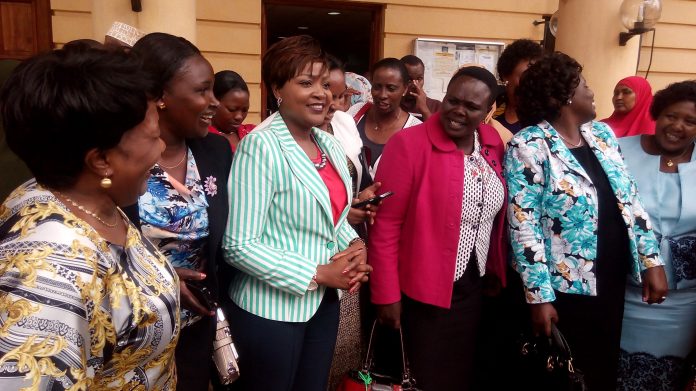
BY SAM ALFAN.
High Court has struck a blow for women empowerment by directing all political parties to enforce the two-thirds gender policy within six months.
The political parties must formulate rules and regulations governing nomination for prospective candidates for 290 Members of Parliament and 47 Senators to ensure women participation, the court ruled.
In case the political parties fail to comply, the Independent Electoral and Boundaries Commission (IEBC) should put in place mechanisms to enforce the requirement, Justice Enock Chacha-Mwita said.
The national elections agency must reject nomination lists presented by political parties that do not adequately conform to the policy to ensure gender parity in future polls, the Judge said.
However, the order will not apply to the August 8 General Election to avoid confusion since it is inconceivable for political parties to restructure their nomination lists in the face of the strict deadlines ahead of the elections, he said.
The Judge said the controversy surrounding the two-thirds gender rule was unjustifiable on grounds that Parliament had not enacted the necessary legislation. Women and marginalized groups had constitutional rights to representation and it was not a favour they were demanding.
“Gender equality is not a fight between men and women. The women of Kenya are not lesser beings. Their rights must be respected at all times. It is about human dignity and securing equal rights for women and to eliminate gender discrimination,” Justice Chacha-Mwita reasoned.
He said the IEBC was reluctant to exercise its constitutional mandate and crack the whip on errant political parties which did not respect women participation. “The Constitution has spoken. We must be ready to listen,” the Judge said.
All political parties were funded from the public purse and were expected to be transparent and accountable to the citizenry. On the other hand, the IEBC was expected to regulate and supervise nominations preceding elections, he noted.
The Judge said IEBC must take a pro-active role in the promotion of affirmative action to ensure women participation in nominations for elective positions.






